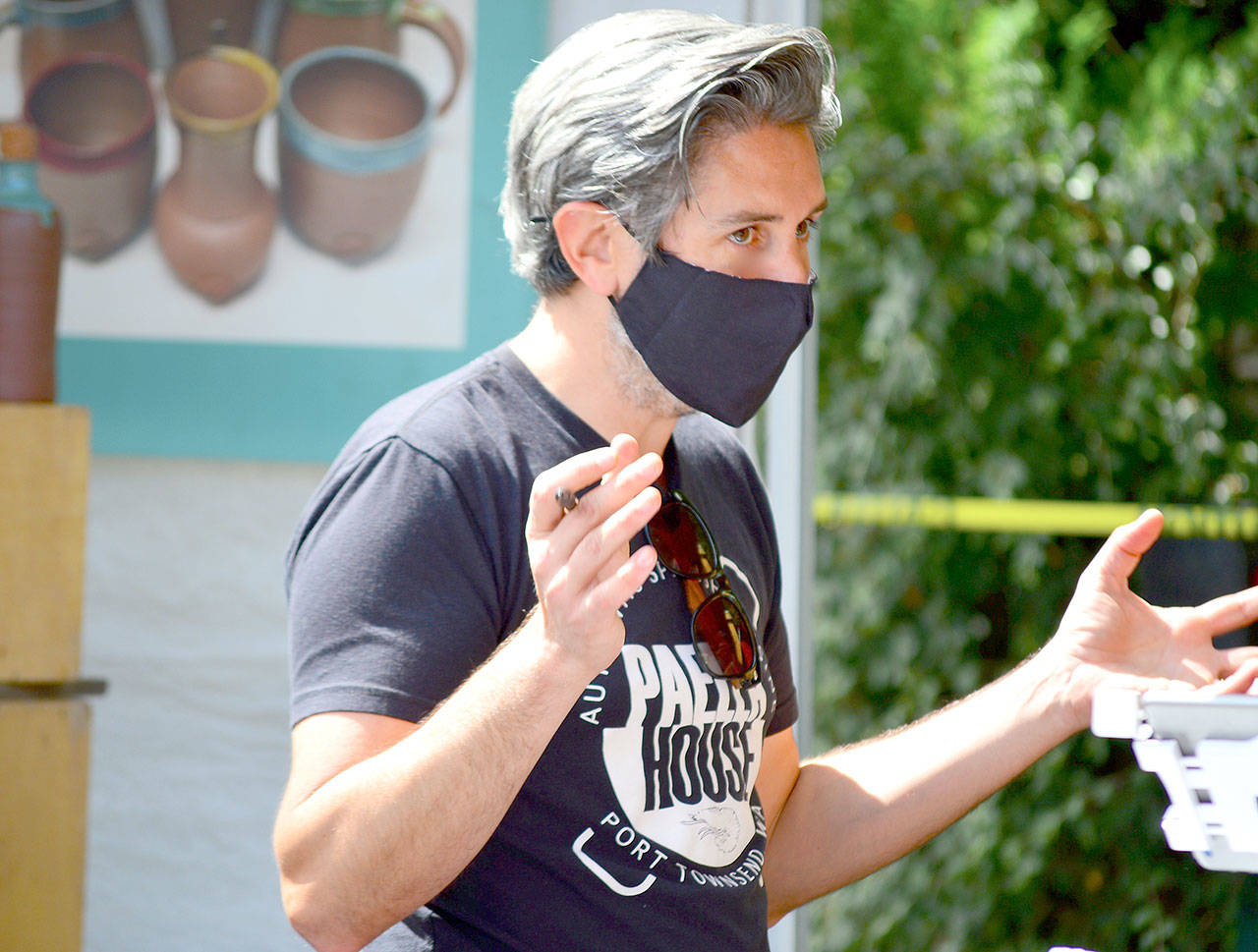LET’S PULL UP a travel memory, shall we?
A blue silk sky. Ivory-colored cupolas, polished stone walkways, the thrum of flamenco guitar — Spain. I felt at home in Cádiz, walking across the cathedral plaza every morning, watching the blood-orange sun slide into the bay each night.
So when I saw a supremely Spanish thing three blocks from my apartment in Port Townsend, I had to stop, gawk and breathe in the scent: paella, cooking at the Saturday farmers market.
Alejandro de Basilio grew up in Madrid, where paella was his family’s Sunday lunch.
The dish traditionally comes together from produce in season and rice grown in the fields around La Albufera, in the province of Valencia.
One sunny day, de Basilio met Heidi Lamprecht, an American with family in Sequim.
They married and made their home in Port Townsend, planting the seeds for Paella House in 2014.
They cultivated their new business into a thriving concern, cooking 75 paellas during July 2019’s Sequim Lavender Weekend.
Besides festivals around the Puget Sound, Paella House’s food truck arrived at dozens of summer weddings and parties. It all began at the farmers market.
Literally translated, paella means frying pan. And de Basilio’s are something to behold: a socially distanced interview was easy, a gigantic paella pan on the table between us.
Life has not been easy since large gatherings came to a halt last spring.
De Basilio and Lamprecht work the farmers market and provide paellas for Saturday evening takeout from their Sims Way kitchen — doing a fraction of the business they did this time last year.
“It’s heartbreaking,” de Basilio said.
Not spirit-breaking, though.
Here is a family company nurtured by Mom and Pop’s belief in what they have to offer.
De Basilio blends ingredients from the Olympic and Iberian peninsulas: veggies grown at Hopscotch Farm in Port Townsend, white Judion beans from León and precious saffron from Valencia itself.
A few years ago, he and his family, plus a couple of friends, went for two weeks in March and crisscrossed the country — covering 3,000 miles in the car they borrowed from his parents.
“It was magical,” de Basilio recalled. With their friends, “I got to see Spain through a different set of eyes. I learned so much about my own country. And I gained 15 pounds,” even with the miles of daily walking.
Hey, when in Spain — or Italy or Greece, if you ask me — do not deprive yourself of the traditional foods.
I know. Trips to these places are not happening for the foreseeable future.
Which is why connecting with local businesses, including those offering us the flavors of the wider world, is especially nourishing right now.
A look at de Basilio’s website — simply Paella.House — is a treat for the eyes. It lays out the dishes we can indulge in while stirring in some Moorish history.
De Basilio learned to make paella at home, with his parents.
Theirs is the Valenciana: just rice, chicken and vegetables.
Anything else is called “arroz con cosas,” rice with things.
De Basilio finds people of the Pacific Northwest love all the things: crab, prawns, mussels, clams, calamari, even a duck and truffle paella.
Whatever the variations, his policy as a chef and business owner is straightforward: “I would not sell anything I wouldn’t feed my children.”
De Basilio has two, a son and daughter, ages 7 and 10. It is for his family, he said, that he keeps going.
“This will pass. We don’t know how long it will take,” he said at the end of our interview.
“But we’ll make it through.”
_________
Diane Urbani de la Paz, a freelance journalist and former PDN features editor, lives in Port Townsend.
Her column appears in the PDN the first and third Wednesday every month. Her next column will be Aug. 19.
Reach her at Creodepaz@yahoo.com.

